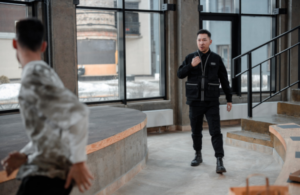If you've ever considered becoming a security officer, now would be a good time to pursue the profession. A check of online news feeds in recent months indicates the demand for security officers that began during the height of the Covid-19 virus -- when mass looting and rioting took place -- continues:
Demand for security guards increases across Oklahoma: https://ktul.com/news/local/demand-for-security-guards-increases-across-oklahoma
As Violent Crime in L.A. Rises, Demand for Private Security Among the Wealthy Soars: https://www.thewrap.com/la-private-security-crime-soars/
California retail theft trend sparks demand for security guards: https://www.abc10.com/article/news/crime/california-retail-theft-security-guards/103-58fce43a-595c-43c9-9a4c-c66ff6ae0667
With demand higher than ever, Reno security companies seek to hire hundreds: https://www.nnbw.com/news/2021/apr/14/demand-higher-ever-reno-security-companies-seek-hi/
Crime-ravaged Seattle is now so dangerous it can no longer protect its own workers: Security guards are hired to walk county staffers to station or ferry (but you're on your own if you work in the private sector) https://www.dailymail.co.uk/news/article-10191185/Downtown-Seattle-dangerous-city-employees-security-guard-escorts.html
And one way to set yourself apart from others who may be applying for the same job as you is to get certified through the International Foundation for Protection Officers (IFPO).


